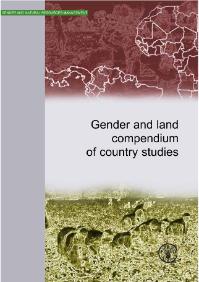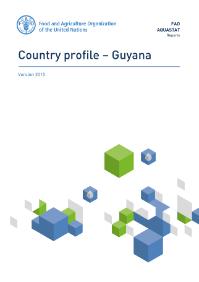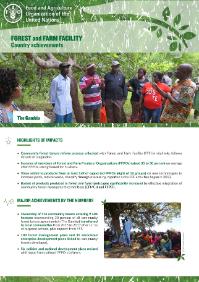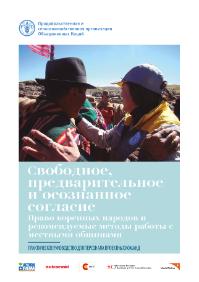Focal point
Location
The Food and Agriculture Organization of the United Nations leads international efforts to defeat hunger. Serving both developed and developing countries, FAO acts as a neutral forum where all nations meet as equals to negotiate agreements and debate policy. FAO is also a source of knowledge and information. We help developing countries and countries in transition modernize and improve agriculture, forestry and fisheries practices and ensure good nutrition for all. Since our founding in 1945, we have focused special attention on developing rural areas, home to 70 percent of the world's poor and hungry people.
Members:
Resources
Displaying 391 - 395 of 5074Land and livelihoods making land rights real for India’s rural poor
Land is at the centre of rural lives in India. Land has inherent value, and it creates value. A plot of land can provide a household with physical, financial, and nutritional security, and provide a labourer with a source of wages. Land is a basis for identity and status within a family and community. Land can also be the foundation for political power.
Gender and land compendium of country studies
From the outset, the development of agriculture has been strongly associated with women’s endeavour. In fact, women’s contribution to agriculture goes back to the origins of farming and the domestication of animals when the first human settlements were established more than 6 000 years ago. Over the years, the division of responsibilities and labour within households and communities tended to place farming and nutrition-related tasks under women’s domain. Nowadays, in many societies women continue to be mainly responsible for family food security and nutrition.
Country profile – Guyana
This country profile describes the state of the water resources and water use, as well as the state of agricultural water management in Guyana. The aim of this report is to describe the particularities of the country and the problems met in the development of the water resources, and irrigation in particular. Irrigation trends, existing policies and legislation to water use in agriculture, possible treaties and agreements between countries as well as prospects for water management in agriculture are presented, as described in literature.
Forest and Farm Facility. Country factsheet
This factsheet gives a summary of FFF impact in The Gambia. Community forest tenure reform process unlocked with Forest and Farm Facility (FFF) in vital role; follows
decade of stagnation.• Incomes of members of Forest and Farm Producer Organizations (FFPOs) raised 35 to 50 percent on averageafter FFPOs strengthened for business.• Value added to products from at least half of supported FFPOs (eight of 16 groups) via new technologies toincrease yields, reduce waste, diversify through processing, reported since FFF activities began in 2013.Свободное, предварительное и осознанное
Руководство «Свободное, предварительное и информированное согласие» (FPIC) разработано в качестве инструмента для специалистов широкого круга проектов и программ любой организации , занимающейся международным развитием , и предоставляет информацию о праве на свободное, предварительное и проинформированное согласие , и о том, как его можно реализовать в шесть шагов. Пособие основано на политике ФАО в отношении коренных народов и народов, ведущих племенной образ жизни (2010 г.), для которой одним из основных принципов является данное согласие.











